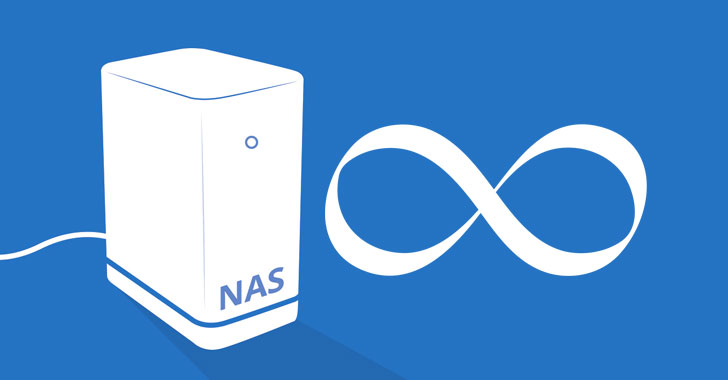QNAP Warns of OpenSSL Infinite Loop Vulnerability Affecting NAS Devices
Taiwanese company QNAP this week revealed that a selected number of its network-attached storage (NAS) appliances are affected by a recently-disclosed bug in the open-source OpenSSL cryptographic library.
“An infinite loop vulnerability in OpenSSL has been reported to affect certain QNAP NAS,” the company said in an advisory published on March 29, 2022. “If exploited, the vulnerability allows attackers to conduct denial-of-service attacks.”
Tracked as CVE-2022-0778 (CVSS score: 7.5), the issue relates to a bug that arises when parsing security certificates to trigger a denial-of-service condition and remotely crash unpatched devices.
QNAP, which is currently investigating its line-up, said it affects the following operating system versions –
- QTS 5.0.x and later
- QTS 4.5.4 and later
- QTS 4.3.6 and later
- QTS 4.3.4 and later
- QTS 4.3.3 and later
- QTS 4.2.6 and later
- QuTS hero h5.0.x and later
- QuTS hero h4.5.4 and later, and
- QuTScloud c5.0.x
To date, there is no evidence that the vulnerability has been exploited in the wild. Although Italy’s Computer Security Incident Response Team (CSIRT) released an advisory to the contrary on March 16, the agency clarified to The Hacker News that it has “updated the alert with an errata corrige.”
The advisory comes a week after QNAP released security updates for QuTS hero (version h5.0.0.1949 build 20220215 and later) to address the “Dirty Pipe” local privilege escalation flaw impacting its devices. Patches for QTS and QuTScloud operating systems are expected to be released soon.
It has been reported that researchers have disclosed security vulnerabilities in handover, a fundamental mechanism that undergirds modern cellular networks, which could be exploited by adversaries to launch denial-of-service (DoS) and man-in-the-middle (MitM) attacks using low-cost equipment. The “vulnerabilities in the handover procedure are not limited to one handover case only but they impact all different handover cases and scenarios that are based on unverified measurement reports and signal strength thresholds,” researchers Evangelos Bitsikas and Christina Pöpper from the New York University Abu Dhabi said in a new paper. “The problem affects all generations since 2G (GSM), remaining unsolved so far.”




